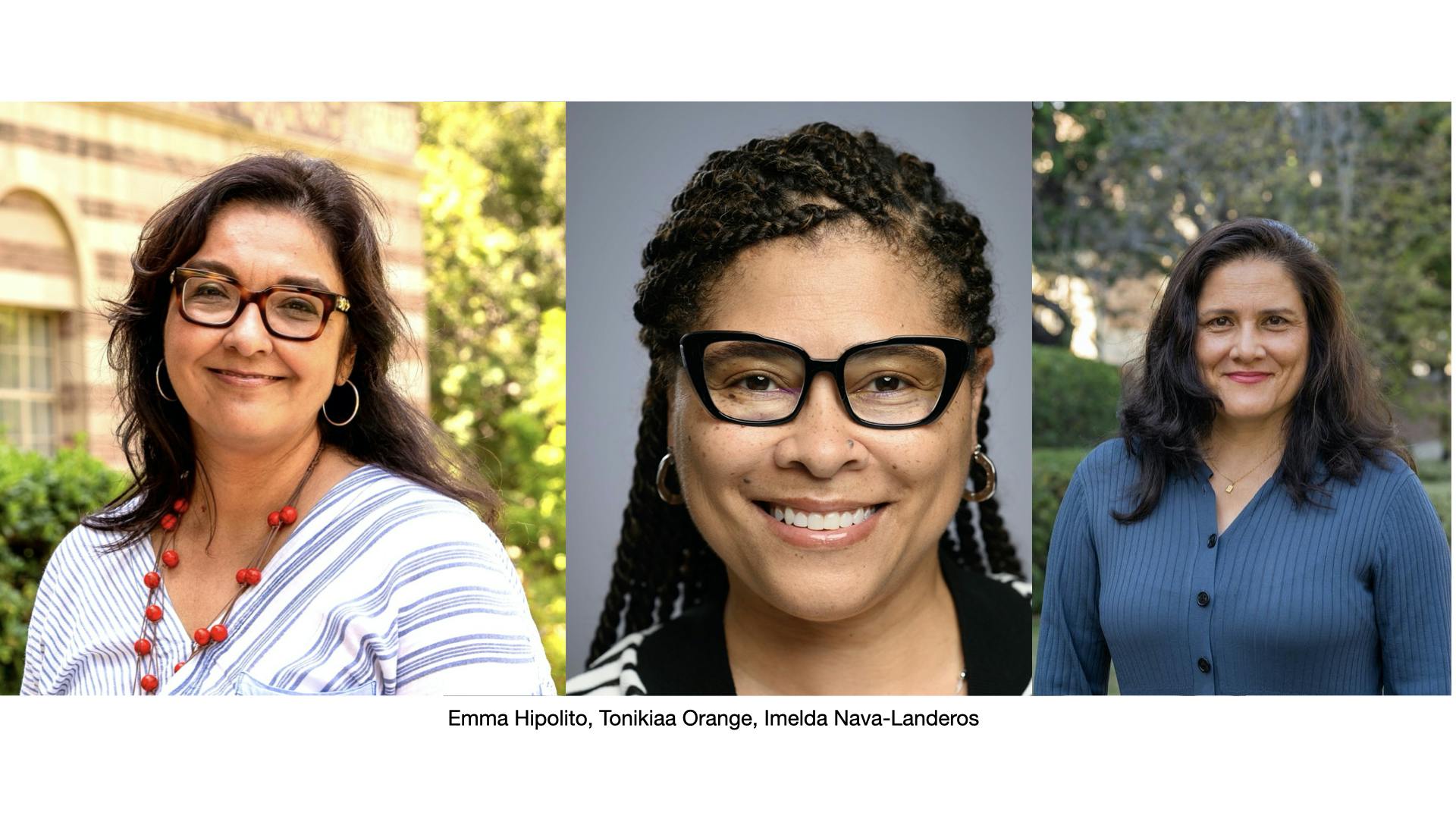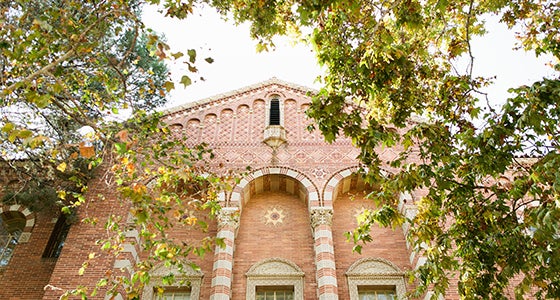The University’s Teacher Education Program and Principal Leadership Institute will partner to build a pipeline of middle-school teachers and leaders focused on racial and cultural literacy.
UCLA Center X has been awarded an $8 million Teacher Quality Partnership grant from the U.S. Department of Education Office of Elementary and Secondary Education. The five-year grant will fund a collaborative partnership to build a pipeline of well-prepared middle school teachers and leaders with the knowledge and skills to serve in high-need schools and further positive outcomes for middle school students. The project is intentionally interdisciplinary, with a focus on racial and cultural literacy and adolescent literacy.
The grant establishes “Cultivating Excellence: Teaching and Leading in Middle Schools” (Cultivating Excellence), a collaborative partnership between the UCLA Teacher Education Program (TEP) and the UCLA Principal Leadership Institute (PLI), housed in Center X, and the UCLA Department of Social Welfare with high-need school districts in southeast Los Angeles County and the Lancaster region. Two community colleges will also partner in the project.
Developed by UCLA TEP director Emma Hipolito, TEP faculty advisor Imelda Nava-Landeros, and Tonikiaa Orange, PLI director, and their partners and colleagues, the grant project envisions an 18-month teacher residency and leadership development program preparing pre-service middle school teachers to receive a California Preliminary Teaching Credential and master’s degree in education.

“The idea is to focus in a concentrated way on the needs of middle school students,” says Hipolito. “We think this is a pivotal age for kids in terms of their academic future and their development as young adults.” The project aims to recruit and prepare 80 new middle school teachers through a high-quality teacher residency led by the UCLA Teacher Education Program.
A vital element of the collaboration will be to engage with community college students and educators to develop a new pipeline of future teachers from communities that have been historically marginalized and under-resourced. As part of its recruitment effort, Hipolito says the project will, “build a pathway to teacher preparation programs from two community colleges with very diverse student populations and assist community college students in completing that journey to become middle school teachers.” Cultivating Excellence seeks to build a more robust pathway between Hispanic Serving Community Colleges (HBCUs) and teacher preparation programs at UCLA and other institutions.
“Our goal is to create a pipeline of new educators that come into the field of education by extending our work with Hispanic serving community colleges,” adds Orange. “Our vision is for the community college students to actually go into the schools and earn service credit and become more interested and engaged in teaching in the community. We are looking to build a bridge into the profession.”
The Cultivating Excellence collaboration will also recruit, train, and support aspiring middle school leaders and enhance the credentials of experienced middle school leaders and mentors. The project includes the development of two micro-credentials engaging participants in professional learning.
The needs of middle school students are unique and the project will develop mentor teachers and aspiring leaders with the understanding, knowledge, and skills to meet their needs by offering training and access to current research and effective practices currently taught through the UCLA PLI. The development of new middle school leaders will be centered in the communities of the Northern Antelope Valley. Cultivating Excellence will also offer training and support to help established leaders serve as mentors.
“This grant provides us the opportunity to work with teachers and leaders in new and innovative ways,“ says Orange. One of these innovations is to create micro-credentials to help teachers and leaders develop an understanding of adolescent and racial literacy and culturally responsive and sustaining pedagogies for use with middle school students. Micro-credentialing will also further the learning and skills of community college students participating in the program.”
Another innovation is a focus on social and emotional learning. The pandemic added stress to students’ and families’ mental and emotional health and raised awareness of the need for effective social and emotional learning practices. As a partner in the project, the UCLA Department of Social Welfare will provide knowledge about issues connected to the mental health of children and families as the project works to develop middle school educators with knowledge of transformative social-emotional learning skills and practices. Transformative social-emotional learning practices will be integrated into all aspects of the project, including coursework and professional development experiences for mentors and community college students.
A vital aspect of the grant project is its geographic location and focus on schools and communities with high levels of poverty. Rising costs and gentrification in Los Angeles have driven many low-income students and their families to the northern Antelope Valley and the cities of Palmdale and Lancaster. The project intentionally aims to serve students and educators in this region. The project is also partnering with the Norwalk-La Mirada School District and the southeast divisions of the Los Angeles Unified School District. Southeast LAUSD encompasses the neighborhoods of Cudahy, Southgate, and Huntington Park, where 26 percent of residents have an income below the poverty level and less than half of residents are high school graduates.
“I’m so excited for this work,“ says Nava-Landeros. “I grew up on the southeast side, so for me, it’s coming home to an area of L.A. that has gone through so many shifts and changes and suffered from environmental, racial, and social injustices, but is also a place of amazing possibilities. There has been such a history of not really fitting in, that I think is so emblematic of the middle school condition. I’m glad that we are going to focus on this area, part of what was the Industrial corridor of Los Angeles, with all the history and pain that it brings with it, but also the possibility.”
“This Teacher Quality Partnership Grant represents a strategic investment in the educators and students of our community and will further the ongoing pursuit by UCLA Center X of excellence in education through a passionate commitment to equity and inclusive diversity,” said Christina Christie, Wasserman Dean of the UCLA School of Education and Information Studies.
“It is also important to note that this grant project reflects the knowledge and expertise of three women of color who are deeply committed to the children and educators of the communities this grant intends to serve. Doctors Hipolito, Landeros, and Orange have poured their heart and soul into the development of this visionary project and are to be commended for their effort.”
The first year of the grant will focus on the planning and development of the Cultivating Excellence project. Hipolito and Orange will serve as project leaders responsible for integrating critical elements of the effort with the UCLA Teacher Education Program and Principal Leadership Institute. A detailed Memorandum of Understanding will be created and signed by each partner to clearly define roles and responsibilities. Cultivating Excellence project leaders and partners will convene regularly to discuss all facets of program planning, ongoing functions, and sustainability, assess program implementation, engage in inquiry cycles of improvement, and coordinate subsequent feedback loops. Initial efforts will include recruitment of candidates for participation in the teacher residency program and the development of micro-credentials.
“The grant represents the UCLA Teacher Education Program and the Principal Leadership Institute’s ability to innovate. We are constantly reshaping ourselves,” says Hipolito. “It also speaks to the importance of community. The work that we do is deeply rooted in community and partnership; it is a journey that is never-ending.”
“As we seek to develop future educators, we hope that this grant will help people to recognize the importance of partnerships,” concludes Orange. “To create a pipeline of future educators, it is not enough just for students to come to a school and come out as a teacher. This grant shows why partnerships with community colleges and school districts, and places like the UCLA School of Social Welfare are needed to invest in the development of teachers and leaders for the long haul in a very deep and meaningful way.”
